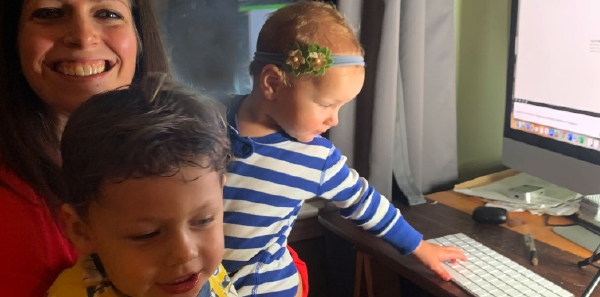
Since the pandemic began, virtual meetings have become the new normal. As a mother of two children under five years of age (and one on the way), I have been reflecting on changes to both department meetings and national conferences.
Explore This Issue
ACEP Now: Vol 40 – No 01 – January 2021Attending conferences is an important part of professional development. Conferences offer opportunities to speak in public, present research, chair committees, and network.1
Being away from home to attend a multiday conference has always been a challenge. Women have unique responsibilities to their families, especially when their children are young. It can be even tougher if you are the primary caretaker and perhaps also the nutritional source for your child if you are nursing. Research specifically identifies barriers to conference attendance as a factor that contributes to gender promotion gap.2 In the article “Are Children Allowed?”, Kass et al surveyed childcare family policies at academic conferences from 2016 to 2018.3 Though they found significant variability in their survey of childcare policies across different specialties, not a single conference in the study had reported completely subsidized childcare. Practices also differed among specialties in terms of allowing children at exhibit halls, lectures, and social events, although every conference did report providing an area for lactation. Clearly, there is a need to improve the way we go about in-person conferences to support women. But has the move to virtual conferences during the pandemic brought any gains for women who face obstacles of balancing childcare needs with their professional development?
Emergency Physicians Weigh In
Many of the women I spoke with say they have found virtual conferences easier to attend. Nikita Joshi, MD, emergency department medical director at Alameda Hospital, Alameda Health System in Oakland, California, states that she “can attend many more conferences now than before without the additional cost and travel and fatigue associated with that.” She explained, “I am available for bedtime, bath, and story time, which are important.” In regard to perceived value, she commented, “In the past, if you weren’t there in person, the perception was that you weren’t engaged.”
Shideh Shafie, MD, FACEP, assistant professor of emergency medicine at the Warren Alpert School of Medicine at Brown University in Providence, Rhode Island, said she has been able to attend more of her department’s meetings and notes the advantage of not having to commute allows her time to drop off kids at school and then jump onto the call. “I feel I can be there and participate without missing a beat.” She hopes that when the meetings do go back to in-person, there can continue to be an option to call in. “I think that would allow for people whose opinions actually are very important and often marginalized to have their voices and opinions be heard.”
Carol Pak-Teng, MD, FAAEM, founder and CEO of APA Emerge, attended ACEP’s Council and Board meetings this year and reported an increased number of participants at the Board meeting. She feels this type of inclusion allows for increased transparency and may lead to new voices and increased representation.
Throughout the pandemic, we have seen that women have disproportionately taken on increased childcare responsibilities while balancing a professional identity. That’s why Nicole Battaglioli, MD, FACEP, FAWM, assistant professor of emergency medicine at Emory University in Atlanta, is a critic of blanket claims that virtual meetings have greatly benefited women. “I’ve been very aware of women who are juggling children, including myself, while attending these conferences,” she said. “It’s easier to put these obligations aside when you are physically distant.” And Dr. Pak-Teng said, “Sometimes things give the illusion of balance when truly they are just making more of a complicated mess. With too much optionality of a virtual way to attend, women may get more pressure not to go and instead to do the balancing act at home while trying to work. Sometimes we just need an excuse to get away and fully immerse ourselves in the work.”
Pages: 1 2 3 | Single Page




No Responses to “Are Virtual Conferences a Blessing for Women?”